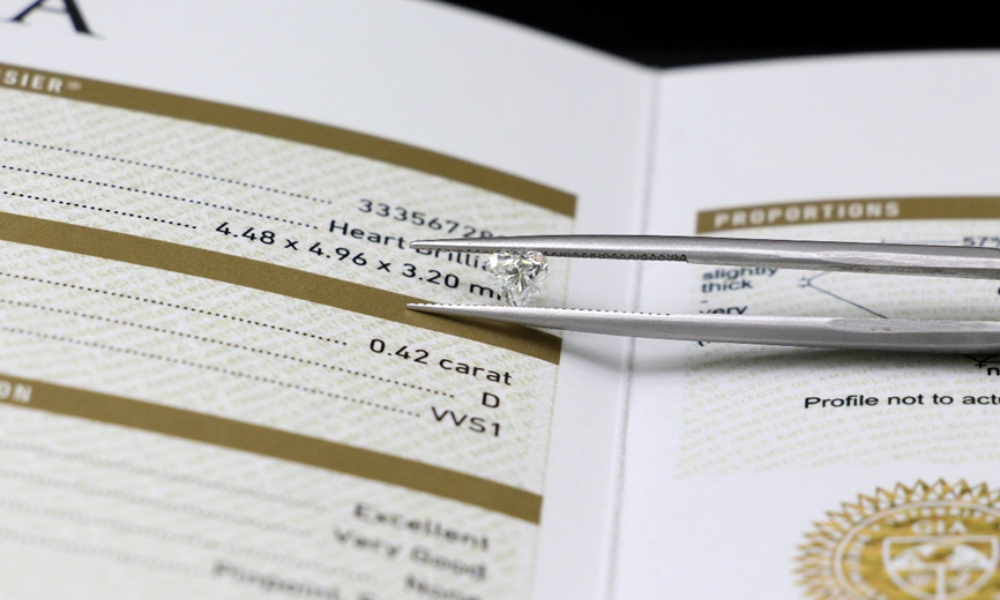The Gemological Institute of America (GIA) will later this year start using descriptive terms to characterise the quality of laboratory-grown diamonds and will no longer use the colour and clarity nomenclature that GIA developed for natural diamonds. GIA will continue to accept laboratory-grown diamonds for evaluation and identification.
The revised GIA description system for laboratory-grown diamonds will confirm that the submitted item is a laboratory-grown diamond and whether it falls into one of two categories, ‘premium’ or ‘standard’. The categories will be defined by a combination of metrics related to colour, clarity and finish. If the man-made diamond fails to achieve the minimum standard for quality, it will not receive a designation from GIA. Until the revised descriptive system for laboratory-grown diamonds is finalised, the current GIA services for laboratory-grown diamonds will continue to be available.
Tom Moses, GIA Executive Vice President and Chief Laboratory and Research Officer, said, “Similar to other man-made gem materials, we anticipate the continued acceptance and popularity of laboratory-grown diamonds. More than 95% of laboratory-grown diamonds entering the market fall into a very narrow range of colour and clarity. Because of that, it is no longer relevant for GIA to describe man-made diamonds using the nomenclature created for the continuum of colour and clarity of natural diamonds.”
GIA developed the universally accepted colour and clarity scales for natural diamonds in the 1940s to clearly communicate their characteristics and reduce consumer confusion. This change to how GIA describes the quality of laboratory-grown diamonds will help consumers understand the important differences in the two products’ origin, ensuring their confidence and enabling them to make informed and educated purchase decisions.
Pricing and submission guidelines for the revised GIA service for laboratory-grown diamonds are in development and will be announced late in the third quarter. Existing GIA reports for laboratory-grown diamonds remain valid.

